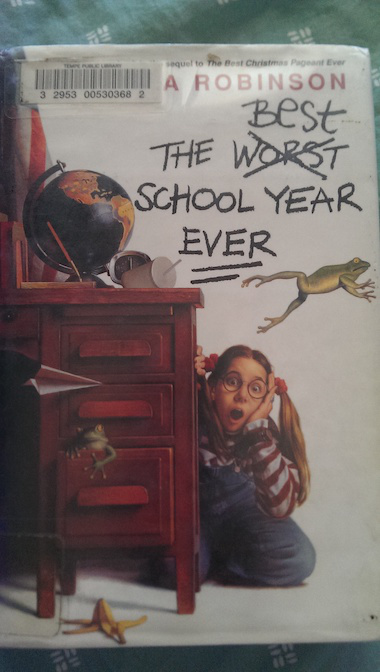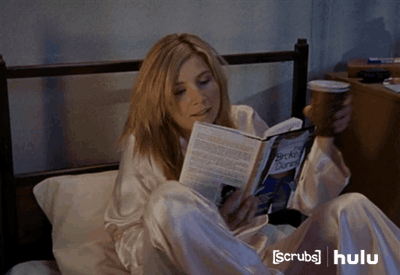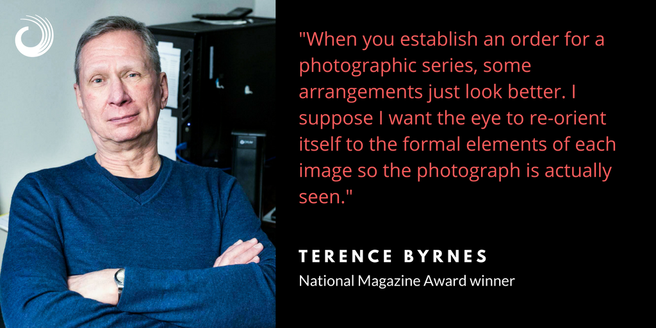 The Best School Year Every by Barbara Robinson, 1994.
The Best School Year Every by Barbara Robinson, 1994.
This year at school, Beth’s teacher has assigned everyone a year-long project to think about good points about their classmates, but it’s difficult when one of your classmates is Imogene Herdman. The Herdmans are generally awful. They lie, steal, set things on fire, bully other kids, and have been kicked out of almost every building in town for one reason or another.
Mr. Herdman deserted the family years ago, and Mrs. Herdman works long hours at the shoe factory, so the six awful Herman kids are left to do pretty much anything they want most of the time, even if what they want to do is to walk off with Louella’s baby brother Howard and draw pictures on his bald little head and charge other kids a quarter to see the amazing “tattooed baby” like some kind of sideshow freak. It’s difficult for the adults in town to tell them off because they never listen or punish them because no punishment ever seems to stick. Mostly, when the Herdmans are around, the adults seem to focus on damage control.
So, Beth struggles to find anything good to say about awful Imogene, the oldest girl in an awful family, but throughout the school year, Beth does begin to notice that Imogene does have other sides to her personality. The book is more of a collection of short stories about the Herdmans’ various antics and escapades and Imogene’s role in them than one single story as Beth thinks about the things Imogene does. Imogene can’t really be called “nice,” and she definitely causes her share of chaos, but she does have occasional moments when she’s helpful or does something in the name of justice, like giving her old blanket to Louella’s little brother to replace the one he lost so he wouldn’t be sad.
Some of Beth’s compliments to Imogene at the end are somewhat generic because Beth struggles to get around some of Imogene’s genuinely awful behavior, but when she considers what Imogene’s best trait is, she finds something that really captures Imogene’s spirit, a quality that Imogene genuinely admires and may lead her on to better things in her life.
This is the second book in The Herdmans Series. The books are funny because of the chaos that the Herdmans cause wherever they go, although you can’t help but feel a little sorry for them at times, too. It’s part of that awful dilemma when you think that someone deserves a good spanking for what they’ve done but, at the same time, you see that it wasn’t entirely their fault. While the Herdmans are responsible for the things they do, they’re also victims of neglect. Their parents aren’t really raising them, and the other adults have mostly given up on them. They do what they do because they can and because no one is there to make sure that they’re doing the right thing. No one even really expects them to do the right thing, so if they do something right, it’s completely up to them.
Beth’s observations about Imogene show that there is hope for her. Imogene has some good traits as well as bad ones, and occasionally, she does do good deeds as well as bad. Beth realizes that Imogene could do some great things in her life because of her resourcefulness (a quality that Imogene likes when Beth points out that she has it), but she realizes that what Imogene eventually turns out to be is still in her hands, whether she uses her abilities to rob banks or run for President. Adults will know that Imogene’s reality is likely to be something in the middle, but the point is that Imogene has more good points than it appears at first and more possibilities in her life than just being a trouble-making Herdman.
As in the first book in the series, there is also something of a contrast between Imogene and Beth’s friend Alice. Alice is the perfect child (at least in her mother’s eyes, and her mother lets everyone know it), but she is also often shallow, bragging up her looks, talents, and perfect behavior to get attention and feel important (which is what Beth thinks is really the best compliment to give Alice because it’s the one she would most value). When Alice is nice, it’s not so much because she is a nice person as she likes the praise she gets for doing it. Really, neither Alice nor Imogene are especially nice; they’re just not nice in different ways and for different reasons (although both have good points, too, which is the point of the story). When Alice gets a compliment, she sees it as merely her due for her perfection, but for Imogene, compliments come as a surprise because she doesn’t hear them much and she knows that she is far from perfect.
Advertisements Share this:




